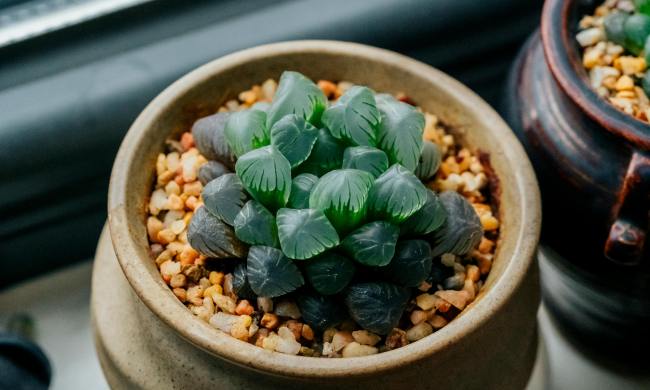Slugs play a vital role in the ecosystem, but that doesn’t mean they aren’t annoying to deal with. It can be so frustrating to wake up and go out to your garden, only to discover holes in your precious plant’s leaves and a slime trail telling you who’s to blame. There are a ton of pesticides on the market, but if you’re dedicated to keeping your garden chemical free or have sensitive plants, you might need something more gentle and natural. Here’s what you need to know about organic slug control, whether you’re interested in making your own, or want to know what to look for when buying one.
Remedies you can make at home
Some home remedies for slugs focus on keeping slugs out of the garden to begin with, while others focus on killing the slugs outright. You can choose a method that works for you or combine methods, if you’d like.
Drawing a battle line
Many deterrents take the form of something that is used to line a garden bed or pot, keeping slugs from crossing it. The most common things to use for this are coffee grounds, egg shells, and seaweed. For any of these three remedies, simply take some of the substance, crush or break it apart as necessary, and sprinkle it in a line around the plants you’re looking to protect. Many gardeners swear by these, although some report mixed results. This could be due to anything from a difference in proportion to how finely ground your coffee or eggshells are.
In general, these are thought to work for two reasons. First, that slugs, as soft bodied creatures, dislike moving across coarse or sharp objects (like eggshells); and, second, that certain substances harm the slugs (such as the high salt content in seaweed).
Other deterrents include attracting predators that eat slugs and planting plants that tend to repel slugs. Birds, frogs, hedgehogs, and toads all think slugs are tasty snacks. Putting in a bird feeder or a water feature, like a small fountain or bird bath, can help attract these friendly feeders. Having a border of naturally repellant plants may also help. Slugs don’t seem to like many of the strong-smelling herbs that we enjoy, so consider adding some lavender or fennel.

Slug killers — salt and beer
Many slug killing home remedies are sprays that work best when directly applied to the slugs themselves. The easiest organic slug spray is saltwater, of course. Simply dissolve regular table salt into warm water and you’re ready to go! Just be careful not to add too much salt since it is not safe for your plants in larger quantities. Be warned — this method isn’t for anyone who’s sensitive. Although it is very effective, it isn’t quick or painless for the slugs.
You can also use slug traps. One creative method is to use beer. Slugs enjoy the yeast in beer, so if you fill a small container with beer, place it on the ground so the top is at ground level, and wait, slugs will be attracted to it, fall in, and drown. However, this won’t work for every slug; it seems to only attract slugs that come within a few feet of it. So this method is best used in conjunction with others.

What to look for when buying organic pesticides
If you don’t want to make your own, or if you just don’t have the time, then you still have options. There are organic pesticides out there that will do the job! Here are a few things to look for when shopping.
Don’t just trust that a product is organic, look at the list of ingredients and a certification of some sort. OMRI, or Organic Materials Review Institute, is one trustworthy organization, so a product with an OMRI seal of approval is a product you can be sure is organic.
Many organic pesticides are insecticidal soaps that are made from potassium salts of fatty acids, also called soap salts. Although the name sounds chemical and intimidating, soap salts are organic and have a long history of use as pesticides.
Now you know the best ways to deal with slimy slugs while maintaining the organic integrity of your garden. You can make your own or buy it, keep them out or kill them on contact. The choice is yours, and there are plenty of choices!



